
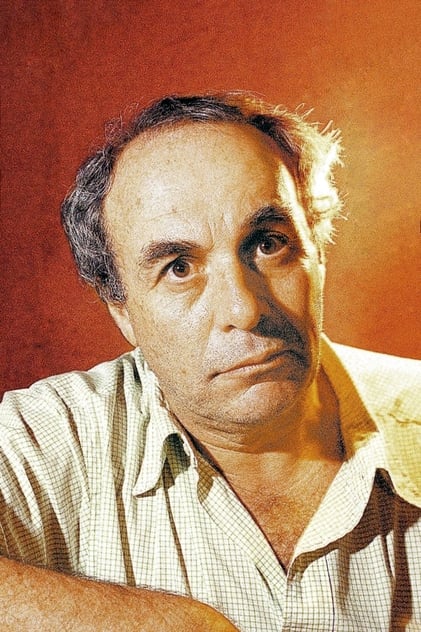
Júlio Bressane
Born: February 13, 1946
in Rio de Janeiro, Rio de Janeiro, Brazil
in Rio de Janeiro, Rio de Janeiro, Brazil
Júlio Eduardo Bressane de Azevedo (Rio de Janeiro, February 13, 1946 ) is a Brazilian filmmaker and writer.
A representative of the Brazilian cinema marginal, he began making films as an assistant director of Walter Lima Jr., in 1965. In 1967, Bressane debuted as director with Face to Face, being selected for the Festival of Brasilia. In 1970, he founded Belair Movies in company with fellow filmmaker Rogério Sganzerla. They chose a model of making films and low-cost production and thereby managed to run six feature films in just six months.
He came into exile in London in the early 1970s, but returned to Brazil several years later and made one film after another, using slapstick and debauchery as its main features. An acclaimed film of this period was the provocative Tabu, released in 1982. Critics consider Bressane the most scholarly of the Brazilian film directors, and his work is notable for the diversity of its narrative language. Another feature of his filmography is the comprehensive approach to historical and literary characters. He is also noted by his low-budget, short-time shootings, with an average of 11 to 14 days to make and edit a film.
Description above from the Wikipedia article Júlio Bressane licensed under CC-BY-SA, full list of contributors on Wikipedia.
A representative of the Brazilian cinema marginal, he began making films as an assistant director of Walter Lima Jr., in 1965. In 1967, Bressane debuted as director with Face to Face, being selected for the Festival of Brasilia. In 1970, he founded Belair Movies in company with fellow filmmaker Rogério Sganzerla. They chose a model of making films and low-cost production and thereby managed to run six feature films in just six months.
He came into exile in London in the early 1970s, but returned to Brazil several years later and made one film after another, using slapstick and debauchery as its main features. An acclaimed film of this period was the provocative Tabu, released in 1982. Critics consider Bressane the most scholarly of the Brazilian film directors, and his work is notable for the diversity of its narrative language. Another feature of his filmography is the comprehensive approach to historical and literary characters. He is also noted by his low-budget, short-time shootings, with an average of 11 to 14 days to make and edit a film.
Description above from the Wikipedia article Júlio Bressane licensed under CC-BY-SA, full list of contributors on Wikipedia.
Movies for Júlio Bressane...
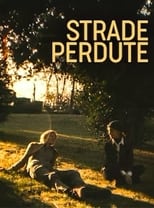
Title: Strade perdute - Filmmaker 23
Released: November 20, 2023
Type: Movie
For Filmmaker Film Festival (2023), Fulvio Baglivi and Cristina Piccino asked some filmmakers (R. Beckermann, J. Bressane, D’Anolfi/Parenti, T. De Bernardi, L. Di Costanzo, A. Fasulo, F. Ferraro, M. Frammartino, S. George, ghezzi/Gagliardo, C. Hintermann, G. Maderna, A. Momo, A. Rossetto, M. Santini, C. Simon, S. Savona) to give us their own "lost road," that is, a sequence, scene or piece of editing that did not later find its way into the final version of one of their works. Each fragment has its own accomplished presence, often has a different title from the film it was made for, which is not necessary to have seen in order to find meaning; on the contrary, those who set out thinking they know the world they are walking through will find themselves displaced.

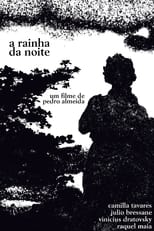
Title: The Queen of the Night
Character: O Espectro
Released: March 26, 2023
Type: Movie
A statue steps down from the pedestal and sets out in search of her Creator, the cold Queen of the Night. In the urban night, she encounters mysterious figures that disappear like shadows. Freely inspired by characters from Mozart's opera, The Magic Flute.

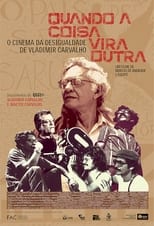
Title: Quando a Coisa Vira Outra
Character: Self (archive footage)
Released: October 6, 2022
Type: Movie
Vladimir Carvalho's Cinema of Inequality marked the documentary filmmaker's trajectory over decades of activity. Considered one of the most important Brazilian documentary filmmakers in activity, his images influenced the emergence of Cinema Novo and the new Brazilian documentary years later. Quando a Coisa Vira Outra covers the most important films made by Vladimir, revealing where ideas come from to show the true reality of a country.

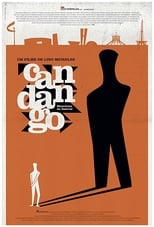
Title: Candango: Memoirs from a Festival
Character: Self
Released: October 22, 2020
Type: Movie
In 1965, a year after the military coup in Brazil, an oasis of freedom opened in the country's capital. The Brasília Film Festival: a landmark of cultural and political resistance. Its story is that of Brazilian cinema itself.

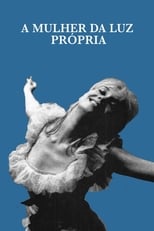
Title: A Mulher da Luz Própria
Character: Self (archive footage)
Released: June 6, 2019
Type: Movie
Helena Ignez is one of the main female figures of Brazilian cinema. She developed a new style of acting. Nowadays, she directs independent films. The documentary tells some of the History of Brazilian cinema, its political context and Helena's trajectory.


Title: Nietzsche Sils Maria Rochedo de Surlej
Released: January 26, 2019
Type: Movie
Bressane (together with his partner Rosa Dias and young filmmaker Rodrigo Lima) guide us through the beautiful Swiss Sils Maria, where Nietzsche spent no less than eight summers. In his letters, Nietzsche indicates which spots brought him to a different understanding of philosophy. He discovered, beyond the philosophical text, a source for ideas in the pure air, in the mountain landscapes, in the water of the lakes, and in the age-old forests.

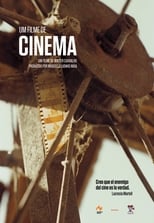
Title: About Cinema
Character: Self
Released: September 15, 2015
Type: Movie
An abandoned tumbledown theater in the outback of Paraíba state is the initial setting of a film about cinema, which explores the testimonials of the novelist and playwright Ariano Suassuna and other filmmakers such as Ruy Guerra, Julio Bressane, Ken Loach, Andrzej Wajda, Karim Ainouz, José Padilha, Hector Babenco, Vilmos Zsigmond, Béla Tarr, Gus Van Sant and Jia Zhangke. They all respond to two basic questions: why do they make movies and why do they serve the seventh art. The filmmakers share their thoughts about time, narrative, rhythm, light, movement, the meaning of tragedy, the audience‘s desires and the boundaries with other forms of art.

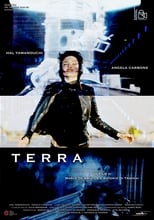

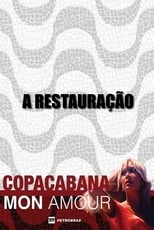
Title: Copacabana, Mon Amour: A Restauração
Character: Júlio Bressane
Released: January 1, 2014
Type: Movie
A documentary on the restoration of Rogério Sganzerla's 1970 film "Copacabana, Mon Amour".

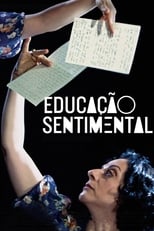
Title: Sentimental Education
Character: Self
Released: October 3, 2013
Type: Movie
Sentimental Education centers on the unique relationship between Áurea, a lonely 40 year old teacher, and a young man she has just met by chance – one of these encounters which mythology and literature are full of. A delicate soul who finds itself attracted to a beauty that seems to demand, disturb and move her. That shakes her up entirely. During the days following their first conversation, she will expose all her feelings through classes in which he will let himself be carried away. Until an unusual episode from the past is revealed and changes everything.

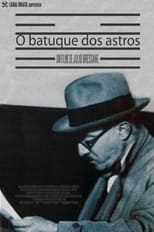
Title: Drumming Beat of the Stars
Released: November 14, 2012
Type: Movie
An essay around the streets, as an homage to Fernando Pessoa

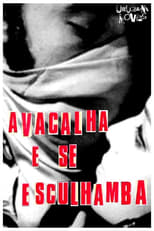

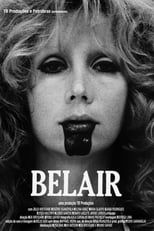
Title: Belair
Released: October 4, 2009
Type: Movie
Between February an May of 1970, Julio Bresane and Rogerio Sganzerla made 7 films for their company Belair that were forbidden by the Brazilian censorship that reveal today images of an unique freedom.

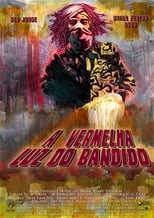
Title: A Vermelha Luz do Bandido
Released: August 11, 2009
Type: Movie
Experimental documentary short that debates over Rogério Sganzerla's Brazilian cult classic "The Red Light Bandit".

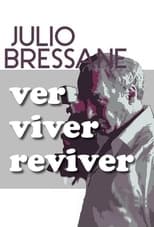
Title: Ver Viver Reviver
Released: January 1, 2007
Type: Movie
In September 2007 Júlio Bressane goes to Ferrara. In the cemetery of the Italian city he ends up making two movies.

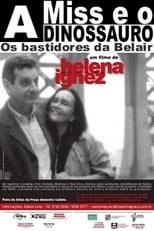
Title: A Miss e o Dinossauro
Character: Himself (archive footage)
Released: May 10, 2005
Type: Movie
A short documentary on Belair, an independent Brazilian film company that lasted for only five months in 1970.

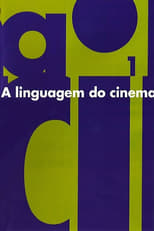


Title: Galáxia Albina
Released: January 1, 1992
Type: Movie
A liberal interpretation of the book Galáxias, one of the most important works by the great contemporary Brazilian poet Haroldo de Campos, written between 1963 and 1976 and published in 1986. Bressane considers this work of poetry the Portuguese Finnegan's Wake. The video is a disorganized system of images: an exploration of colors, quotes and sudden inspirations created by the words. A sequence of epiphanies, rigorous in their images. The films cited act as cinematographic scenery, conferring a sense of drama to the movements of the actresses and the readings of the poems.

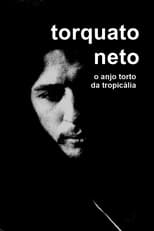
Title: Torquato Neto, O Anjo Torto da Tropicália
Character: Self
Released: January 1, 1992
Type: Movie
A documentary chronicling the life and works of Brazilian poet, songwriter, journalist and avant-garde filmmaker Torquato Neto, from his beginnings to his suicide at the age of 28.

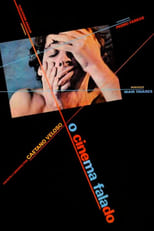
Title: Talking Cinema
Released: December 11, 1986
Type: Movie
A fragmented style, patchwork of interviews with Caetano Veloso's friends, mixed with conversations, thoughts, scenes of dance and literature excerpts.

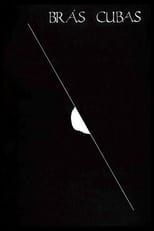
Title: Brás Cubas
Released: October 15, 1985
Type: Movie
Irreverent adaptation of great writer Machado de Assis's masterpiece "Memórias Póstumas de Brás Cubas" ("Brás Cubas's Posthumous Memories"). A dead man tells about his love life and adventures, specially his affair with Virgília, a dubious married woman.

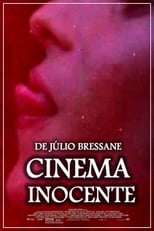
Title: Naive Cinema
Character: Reporter
Released: March 28, 1979
Type: Movie
An essay film on the editing of erotic movies.


Title: Horror Palace Hotel
Character: Himself
Released: July 1, 1978
Type: Movie
An unusual look at 1978 Brasilia Film Festival and the politics that make certain films fashionable or not.

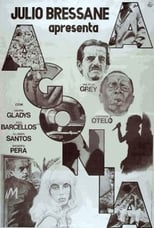
Title: The Agony
Released: December 30, 1976
Type: Movie
Cropped hair, a rosemary branch behind the ear, yellow shirt of shiny satin, he's behind the wheel of his car when passing by a woman who walks by the roadside. Strongly painted lips, printed dress with round skirt and red shoes matching the color of the lipstick, she catches his attention. He gives her a ride, the two of them stare in silence for a few moments. They introduce themselves to one another and between the two establishes an absurd dialogue and full of metaphors. And they are driving around in corners of Rio de Janeiro, to the sound of Noel Rosa and Lamartine Babo. Eva and Antena, she a seer, he, an assassin on the run, initiate an unusual case of love, a marginal love, where boredom often gives way to tragedy, creating the agony of a holiday spent in an abyss.

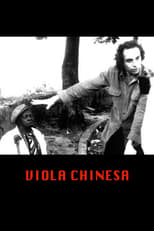
Title: Viola Chinesa
Released: May 31, 1975
Type: Movie
The rare short film presents a curious dialogue between filmmaker Julio Bressane and actor Grande Otelo, where, in a mixture of decorated and improvised text, we discover a little manifesto to the Brazilian experimental cinema. Also called "Belair's last film," Chinese Viola reveals the first partnership between photographer Walter Carvalho and Bressane.

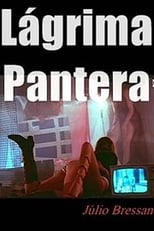
Title: Lágrima Pantera — A Míssil
Released: January 1, 1972
Type: Movie
A silent film shot in New York in 1972, including scenes in Hélio Oiticica’s apartment. Last film made in exile by Bressane, it mimics the experimental concept of "quasi-cinema" by Hélio Oiticica. It consists of a fragmentary experience of freedom, in super-8 and 16mm, in a code out of time, out of the square, while recreating (with different cameras) the wild and sensitive look that Oiticica dedicated to cinema.
